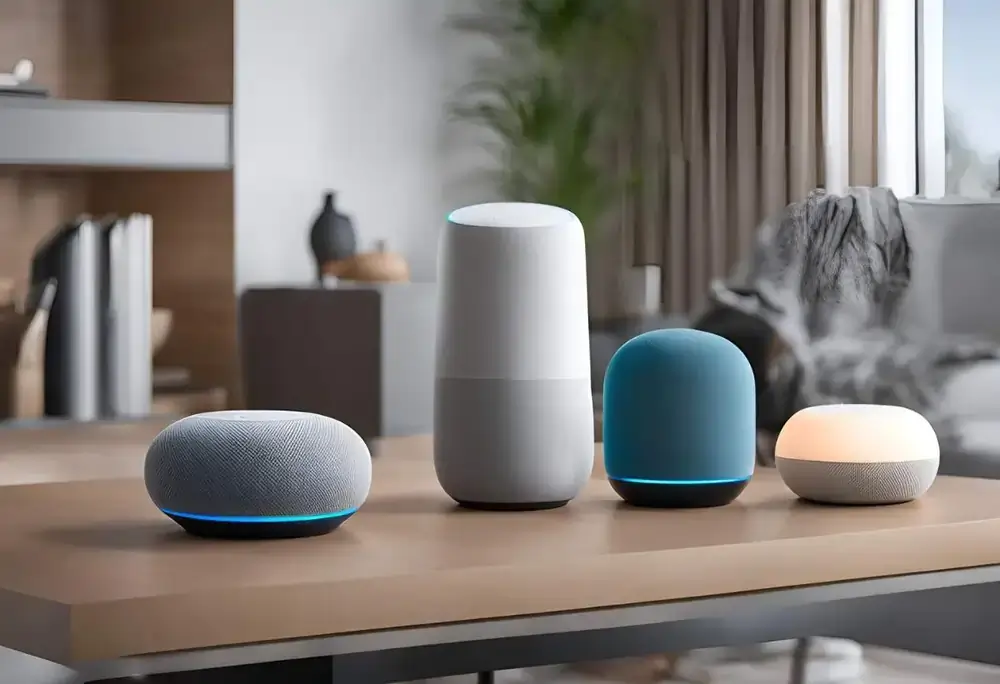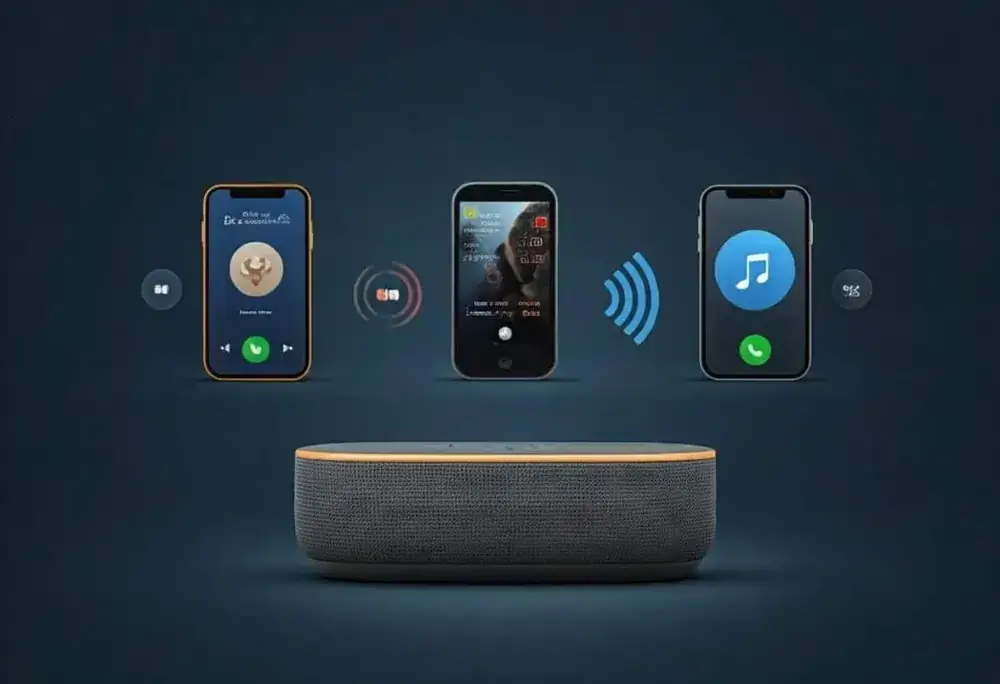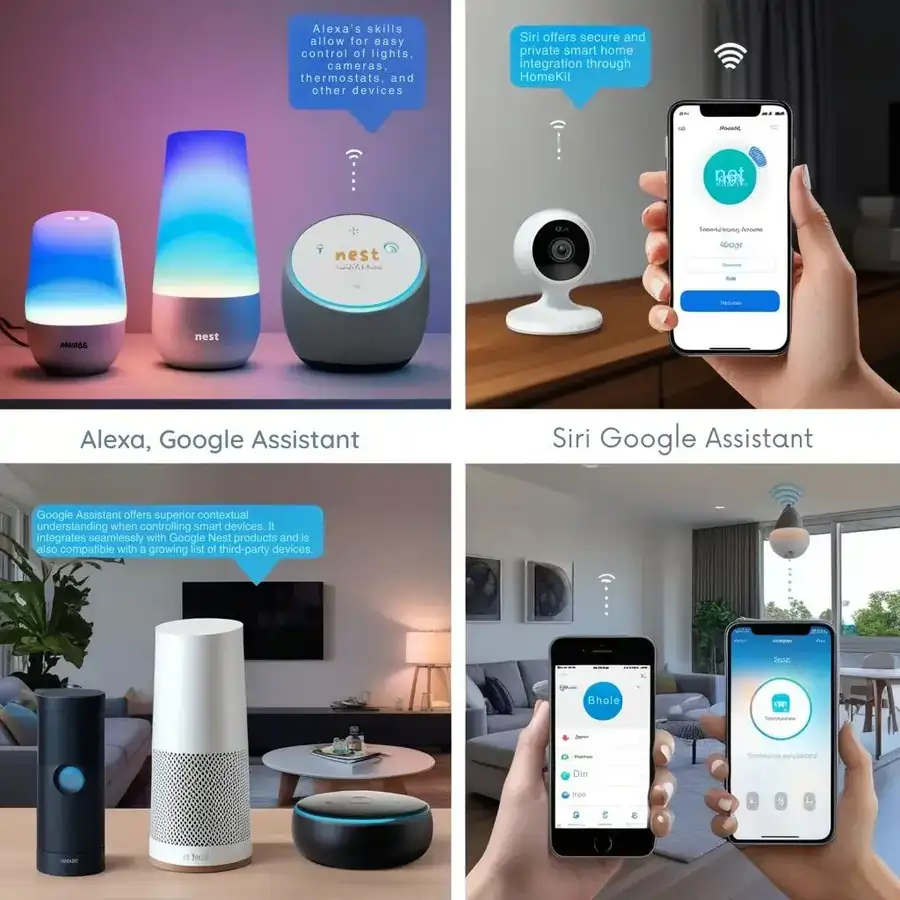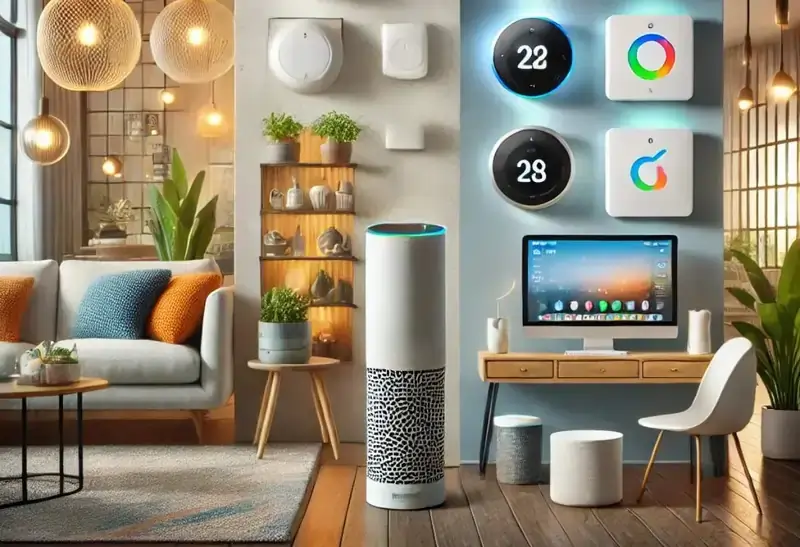Discover how Alexa vs Google vs Siri stack up in 2024. Compare these top voice assistants’ features, compatibility, and performance to find your perfect AI companion.
Have you ever felt like talking to a wall when asking your voice assistant a question? You’re not alone! A staggering 72% of voice assistant users report frustration with their AI companions at least once a week. But fear not, fellow tech enthusiasts! In 2024, the battle of the voice assistants is heating up, with Alexa, Google Assistant, and Siri vying for the top spot in our hearts (and homes). As these AI-powered helpers evolve, it’s time to take a fresh look at how they compare. Are you ready to find out which assistant truly deserves the crown? Let’s dive in!
Key takeaways:
- Alexa excels in smart home control and third-party integrations.
- Google Assistant shines in web searches and general knowledge.
- Siri stands out in terms of privacy features and iOS device integration.
- All three assistants have improved natural language processing.
- Compatibility with Smart Home Devices varies among the assistants.
Overview of Each Voice Assistant: Alexa Vs. Google Assistant Vs. Siri

Amazon Alexa
Amazon introduced Alexa in 2014, one of the most popular voice assistants in the market. It was designed for smart home control and voice commands. Alexa is compatible with over 140,000 smart devices, including lights, thermostats, and security cameras. Amazon has also built an impressive ecosystem of 100,000+ skills, allowing Alexa to handle everything from ordering groceries to making phone calls.
One of Alexa’s strengths lies in its wide range of device compatibility. It integrates seamlessly with products like Amazon Echo, Philips Hue, and other third-party smart devices, making it the go-to choice for smart home enthusiasts.
Google Assistant
Google Assistant launched in 2016 and quickly gained a reputation for being the most intelligent and conversational voice assistant. Thanks to Google’s AI and natural language processing (NLP) Technology, Google Assistant excels at handling complex queries. It also integrates with Google services such as Google Maps, Google Home, YouTube Music, and Google Photos.
If you’re already entrenched in the Google ecosystem, Google Assistant offers seamless integration with these platforms. It’s adept at answering follow-up questions, understanding context, and delivering accurate responses to complex questions.
Apple Siri
Siri, introduced by Apple in 2011, was the first voice assistant to enter the market. Known for its wit and tight integration with Apple’s ecosystem, Siri is the preferred choice for Apple users. It works well with Apple Watch, Apple TV, HomeKit-enabled devices, and the Apple Music library.
Siri is firm in privacy and security, as Apple is known for its on-device AI processing and strict data protection measures. However, Siri needs to improve compared to Google Assistant in handling complex queries and third-party app integration.
Key Comparison Parameters
Answering Questions and Accuracy
Regarding answering questions, Google Assistant leads the pack with a 93% accuracy rate, followed by Siri at 83% and Alexa at 80%. Google Assistant’s ability to understand natural language and context allows it to handle complex questions and offer enlightening responses.
Recent improvements in Alexa’s AI have allowed it to close the gap, but it still struggles with conversational responses. While not as accurate as Google Assistant, Siri is reliable in terms of basic commands and offers personalized responses tailored to the Apple ecosystem. Here’s a quick breakdown:
Assistant | Accuracy Rate | Strengths |
|---|---|---|
Google Assistant | 93% | Superior at answering complex queries, contextual understanding, and follow-up questions |
Siri | 83% | Strong at answering basic commands, integrates well with Apple devices |
Alexa | 80% | Excellent for smart home control, constantly improving AI capabilities |
Communication and Voice Commands
Alexa excels in voice communication, allowing users to communicate with other Alexa users easily. You can make phone and video calls and even use Alexa Guard for enhanced security features. Alexa’s drop-in feature allows instant communication between Echo devices, making it a valuable tool for households.
Google Assistant, on the other hand, can make international calls through Google services. It also offers a frictionless experience when scheduling appointments, setting reminders, and making international calls. Google Assistant integrates well with smartphone apps like Google Meet and Google Voice, making it a strong contender in communication.
Siri is deeply integrated into Apple’s messaging system, enabling users to send messages, make emergency calls, and schedule appointments quickly. Siri also offers voice commands for various Apple-specific functions, such as controlling Apple TV or activating Apple Watch features.
Playing Music

When it comes to music playback, each assistant offers a seamless experience but with different strengths:
- Alexa supports various music services, including Amazon, Apple, and Spotify. Alexa’s sound quality on the Echo Studio and Echo Dot is excellent.
- Google Assistant integrates well with YouTube Music and Google Play Music, offering high-quality sound on devices like Google Nest.
- Siri is built around Apple Music, offering superior sound quality with Dolby Atmos and spatial audio on devices like the HomePod and Apple TV.
Assistant | Music Services Supported | Device for Best Audio Quality |
|---|---|---|
Google Assistant | YouTube Music, Google Play Music, Spotify | Google Nest |
Siri | Apple Music, Apple Podcasts, Prime Music | HomePod Apple TV |
Alexa | Amazon Music, Apple Music, Spotify, Prime Music |
Smart Device Compatibility
Amazon Alexa leads the market with compatibility across 140,000+ smart devices. Alexa is hard to beat if you want a truly connected smart home experience. It works seamlessly with smart home platforms like Philips Hue, Nest, and Ring.
Google Assistant is catching up quickly, particularly with its Google Nest range. Google Assistant works with various third-party smart devices, but its integration focuses on Google services.
Siri is the most limited in terms of third-party integrations, but it excels within Apple’s HomeKit ecosystem. Siri offers tight integration if you heavily invest in Apple products like the Apple Watch, Apple TV, and HomePod.
Smart Home Integration and Control

Alexa is a standout when it comes to smart home control. It is compatible with Philips Hue, Nest, Ring, and other third-party smart devices. Alexa’s skills allow easy control of lights, cameras, thermostats, and other devices.
Google Assistant offers superior contextual understanding when controlling smart devices. It integrates seamlessly with Google Nest products and is compatible with a growing list of third-party devices. The Google Home app allows users to control everything from a single interface.
Siri may be more limited in terms of compatibility, but it offers secure and private smart home integration through HomeKit. Apple’s on-device AI processing makes Siri the preferred choice for users concerned about privacy and data security.
Privacy and Security: Which Voice Assistant is the Safest?
Alexa, Google Assistant, and Siri all offer customizable privacy settings, but they take different approaches to user data:
- Alexa offers detailed privacy controls, allowing users to review and delete voice recordings. Amazon has also added features like Alexa Guard, which detects unusual sounds like breaking glass and sends alerts to your phone.
- Google Assistant is transparent about its data collection practices and offers easy-to-use privacy controls in the Google Home app. If you adjust the settings, Google Assistant can Process queries without saving recordings.
- Siri is known for its privacy-first approach. Apple ensures your data stays private by processing it on-device, not sharing it with third parties. Siri has become the most secure option for privacy-conscious users because of its anonymized data.
For more information on each assistant’s privacy settings, you can visit Amazon Alexa’s privacy settings, Google Assistant’s privacy controls, and Apple Siri’s privacy.
Cost Comparison
The devices that incorporate voice assistants come at different prices, but the assistants themselves are available for free:
- Alexa devices (e.g., Echo Dot, Echo Show, Echo Studio) range from $49 to $199.
- Google Assistant devices (e.g., Google Nest Mini, Nest Hub, Nest Audio) have similar prices, ranging from $49 to $199.
- Siri devices are the most expensive, with HomePod retailing for around $299, though you can also use Siri with Apple Watch, iPhone, and Apple TV.
Final Verdict: Which Voice Assistant is Best for You?
Best for Smart Home Control
Alexa is the best option if you’re looking for broad smart home compatibility and flexible device control. It works with 140,000+ devices and offers deep integration with third-party smart devices.
Best for Google Services Integration
Google Assistant is the best choice if you’re already using Google services. Its integration with Google Maps, Google Photos, and YouTube Music offers a frictionless experience across all devices.
Best for Apple Users
Siri is perfect for those invested in the Apple ecosystem. Its tight integration with Apple devices and privacy-first approach make it the best choice for enthusiasts.
Frequently Asked Questions (FAQ)
- What’s the difference between Alexa, Google Assistant, and Siri?
Alexa is best for smart home control, Google Assistant excels in natural language processing, and Siri is ideal for Apple users.
- Which voice assistant is best for smart home management?
Alexa is the leader in smart home management due to its broad device compatibility.
- How accurate are these voice assistants?
Google Assistant is the most accurate, with 93%, followed by Siri and Alexa.
- Are there privacy concerns with voice assistants?
Yes, but each assistant offers privacy controls. Siri is known for its privacy-first approach.
- What are Siri, Alexa, and Google Assistant?
Siri, Alexa, and Google Assistant are all voice assistants that help you perform tasks using your voice. Siri is Apple’s voice assistant, Alexa is Amazon’s, and Google developed Google Assistant. You can use them to play music, answer questions, set reminders, and control smart home devices.
- Who is better: Alexa, Siri, or Google Assistant?
It depends on what you’re looking for. Alexa controls Smart Home Devices and has the most third-party integrations. Google Assistant is the most accurate in answering questions and works well with Google services. Siri is best for people using Apple devices like iPhones and Apple Watches.
- How did Siri, Alexa, and Google Assistant lose the AI race?
While these voice assistants were early leaders in AI Technology, recent advancements in generative AI have outpaced them. Programs like ChatGPT and Bard now provide more complex, human-like conversations and advanced problem-solving abilities. The new AI models are now considered more advanced than voice assistants.
- What are the home assistants: Alexa, Siri, Google Home?
Alexa, Siri, and Google Assistant are the leading home assistants controlling smart home devices. Alexa works with Amazon’s Echo devices, Siri is used with Apple’s HomeKit and devices like the HomePod, and Google Assistant powers the Google Home and Nest products.
- What is the best: Alexa, Siri, or Google Assistant?
The best voice assistant depends on your needs. Alexa might be the best choice if you have many smart home devices. If you use many Google services, go with Google Assistant. Siri is the best option for people who are heavily invested in Apple products.
- Which is best: Google Assistant, Alexa, or Siri?
Google Assistant is often rated the best for natural language understanding and accuracy. Alexa is best for smart home control, while Siri offers the best integration with Apple devices.
- Who is the better assistant: Google, Alexa, or Siri?
Google Assistant is the most accurate and provides the best AI responses. However, Alexa is more vital for smart home devices, and Siri is perfect for users who prefer Apple’s ecosystem.
- Can voice assistants control smart home devices?
Yes, Alexa, Google Assistant, and Siri can all control smart home devices like bright lights, thermostats, and security cameras. You can use them to turn on lights, adjust the temperature, or lock doors with a voice command.
- Do voice assistants understand different languages?
Yes, voice assistants support multiple languages. Google Assistant leads with over 30 languages, Siri supports about 20, and Alexa is also available in several languages.
- Can voice assistants play music?
Yes, all three voice assistants can play music. Alexa supports services like Amazon Music and Spotify. Google Assistant works with YouTube Music and other streaming platforms, while Siri is best for playing music through Apple Music.


